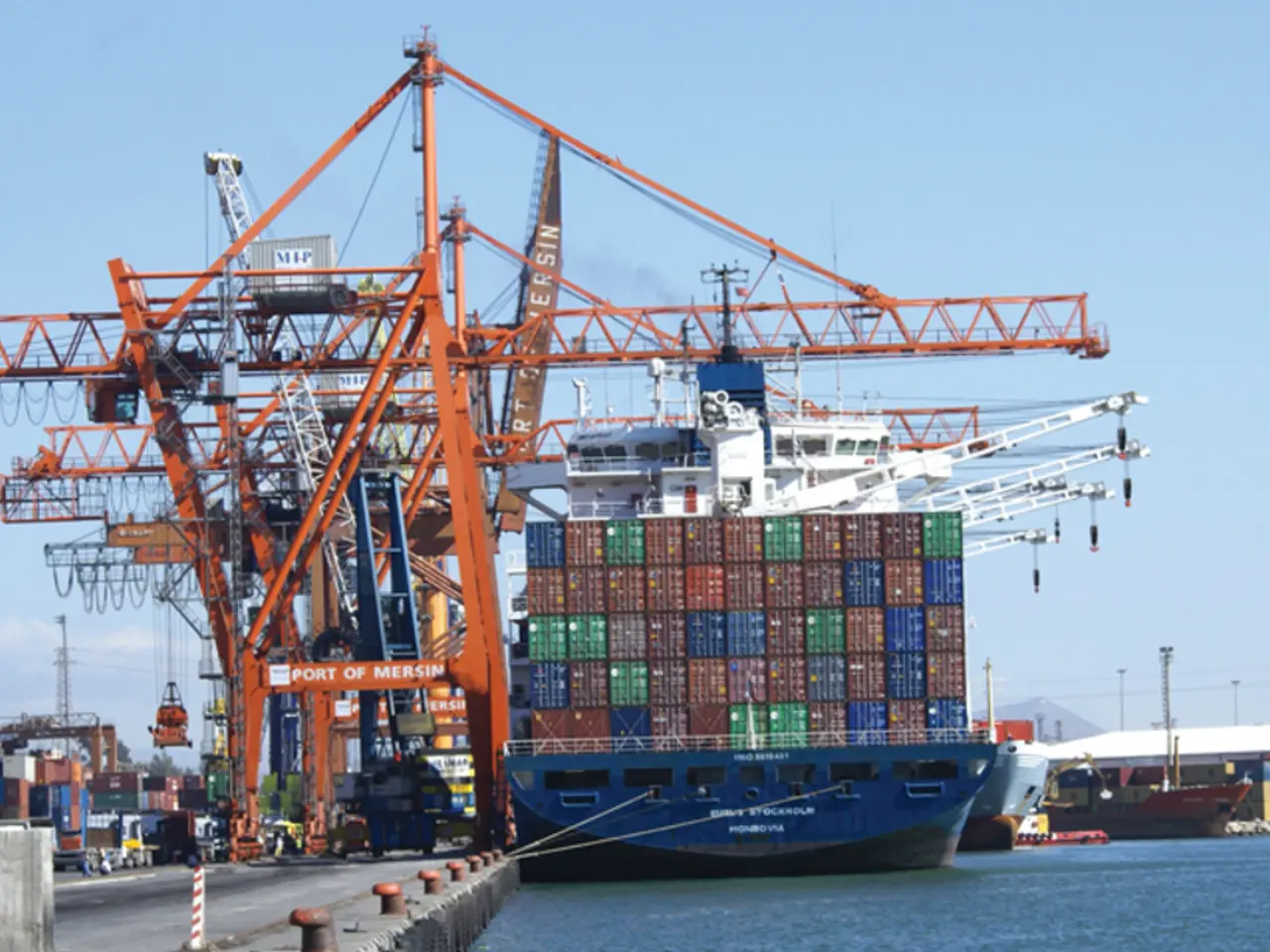Virtually a tenth of Germany's imports transit via the Red Sea
The Red Sea route, a critical sea passage for German imports, is under threat due to shelling from Houthi rebels in Yemen. This maritime corridor is vital for bringing key raw materials and industrial inputs into Germany, representing nearly 10% of Germany's total import volume, amounting to about €136 billion in 2023.
According to Ifo trade expert Lisandra Flach, the Red Sea route is of particular geoeconomic importance to Germany. The route is used by about 10% of all German imports, primarily via the Suez Canal and the Strait of Bab el-Mandeb.
Disruptions caused by missile attacks and blockades in this area can lead to substantial economic consequences, including delays, increased transport costs, and supply chain interruptions for these critical raw materials and intermediate goods crucial to German industry.
The vulnerability of the Red Sea area as one of a handful of major maritime chokepoints upon which global trade is highly concentrated means that Germany's trade is therefore vulnerable to geopolitical instability there. About 50% of Germany's extra-EU trade depends on sea transport, passing through critical bottlenecks like the Red Sea.
The importance of the Red Sea route for German imports has been highlighted in a recent study conducted by the Munich Ifo Institute. The study did not specify which specific raw materials or intermediate products are transported through the Red Sea route, but it did report that the trade volume of goods passing through this route in 2023 was €136 billion.
The investigation about the Red Sea route's importance to the German economy was reported on Wednesday for the Federal Ministry of Economics. The Ifo Institute reported the shares of German imports via various sea routes in 2023, including the Strait of Malacca (8.7%), Taiwan Strait (7.1%), Strait of Hormuz (0.4%), Panama Canal (0.5%), and the Red Sea route (approximately 10%).
The instability has prompted interest in alternative routes and corridors such as the India–Middle East–Europe Economic Corridor (IMEC), aiming to reduce dependence on volatile maritime routes around the Red Sea. However, these alternatives are still developing and have their own political and logistical challenges.
In summary, Germany's heavy reliance on the Red Sea maritime route for vital imports exposes its economy to significant risks from Houthi rebel attacks, making secure and stable passage through this route essential for German trade and industrial supply chains.








